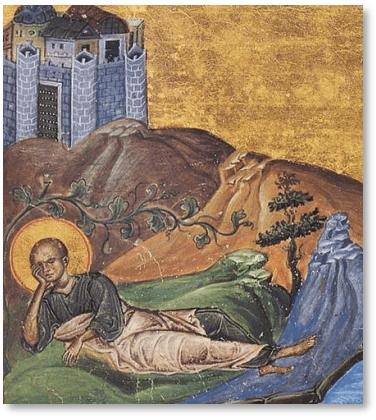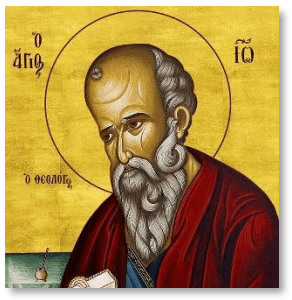An Object of God’s Love
The scriptures are quite clear that the world is an object of God’s love. The early chapters of Genesis reveal that God freely chose to create the world as an act of love, without any compulsion or necessity. Though the historical narrative Old Testament from Genesis to Nehemiah (i.e., from Abraham to the return from exile) is the extended story of the covenant people as the object of his special care, this narrative is set within a universal context. The early chapters of Genesis reveal Yahweh Elohim, the God of Israel, to be the creator of the entire world and all it contains, including all the Gentile nations not in covenant with him.
The first eleven chapters of Genesis are universal in their scope. They narrate the creation of the man (in Hebrew the adam) and the woman1—i.e., the entire human race—as the special work of the Hebrew God. The story reveals Yahweh’s care for mankind even before men began to call upon the name of Yahweh in worship (see Gen 4:26). When mankind strayed and sinned, and rebelled even more, God decided to judge them for their rebellion by sending a flood to wipe them out—but only after taking steps to preserve righteous Noah and his family and through them preserving the entire human race. God further showed his patience by promising that although the intent of man’s heart was evil from his youth, He would nonetheless not again destroy the world (Gen 8:21). Thus, these chapters reveal God’s loving concern and solicitude for all the world, not just his chosen people.2
We also glimpse God’s universal love for his creation in other parts of the Hebrew scriptures. When Abraham is first called, God promises him that through his family all the families of the earth would eventually find blessing. The call of Abraham (and therefore the destiny of Israel) is set within a universal context and is intended to bring God’s blessing and love to all the nations of the earth.
Perhaps the most astonishing revelation of this divine love is found in the tale of Jonah.3 Having declared Yahweh’s judgment against Nineveh and its imminent overthrow, as Jonah feared, the city repented, and God forgave them, changing his mind and not sending the threatened judgment. Jonah therefore sulks and sits down to watch what will happen next. God then sent a plant which instantly grew over Jonah to give shade, and then sent a worm to attack the plant so that it withered and provided no more shade. Finally, He sent a scorching east wind so that Jonah grew faint—and furious. God then asked him, “Do you have good reason to be angry about the plant?” Jonah retorted that he certainly did, “even to death.” God then delivered his final line, and the lesson of the whole story:
sending the threatened judgment. Jonah therefore sulks and sits down to watch what will happen next. God then sent a plant which instantly grew over Jonah to give shade, and then sent a worm to attack the plant so that it withered and provided no more shade. Finally, He sent a scorching east wind so that Jonah grew faint—and furious. God then asked him, “Do you have good reason to be angry about the plant?” Jonah retorted that he certainly did, “even to death.” God then delivered his final line, and the lesson of the whole story:
You pity the plant for which you did not labour, nor did you make it grow, which came into being in a night and perished in a night. And should I not pity Nineveh, that great city, in which there are more than a hundred and twenty thousand persons who do not know their right hand from their left, and also much cattle?
In other words, God feels compassion for all that He has made—even for the brutal Gentiles of the hated Assyrian empire.
This strand of Old Testament universalism finds its culmination and fulfillment in the New Testament, for Christ came not just to save the chosen people, but to bring salvation to all the world. As said above, in Christ membership in the covenant people of Israel is offered to all the world, to anyone willing to repent and be baptized. In Christ, God creates a new people, a new humanity, one neither Jewish nor Gentile (Eph 2:15). In Christ, the blessing that God had promised to Abraham would come to all the families of the earth: “In Christ Jesus the blessing of Abraham came to the Gentiles” (Gal 3:14).
St. John is especially clear that it was the whole world—Gentile as well as Jew—that was the intended object of God’s love and redemption. In the first words of his Gospel, John declared that the life of Christ was the light of men, not just the light of Jews (John 1:4). As many as received him, Jew or Gentile—were given the authority to become the children of God. In one of the most important passages in his Gospel, John declared that “God so loved the world that He gave His only-begotten Son, that whoever believed in Him should not perish but have eternal life” (John 3:16). The Father sent the Son so that the whole world might be saved (vs 17). Christ is therefore hailed by the Samaritans a “the Saviour of the world” (John 4:42).
In Imitation of the Father
Given this universal love, Christians are called to imitate the Father and love the world as well, loving even their enemies and praying for their persecutors that they may become true sons of their Father (Matt 5:44–45). The first and great commandment is embodied in the Shema, the fundamental Jewish confession: “Hear, O Israel, the Lord our God, the Lord is one!4 And you shall love the Lord your God with all your heart, and with all your soul, and with all your mind, and with all your strength” (Deut 6:4–5; Mark 12:29–30). But this commandment has a flip side, a corollary, a second which is like it: “You shall love your neighbor as yourself” (Lev 19:18; Mark 12:31). That is, love for God is also expressed in love for neighbor, so that if one does not love one’s neighbour, one does not truly love God either.
St. John expresses this truth with his customary concision and force:

If someone says, ‘I love God’, and hates his brother, he is a liar, for the one who does not love his brother whom he has seen, cannot love God whom he has not seen. And this commandment we have from Him, that the one who loves God should love his brother also (1 John 4:20-21).
Love, of course, is an action, not a feeling or an emotion, and so is always expressed in works. To love one’s neighbor one must visit him when he is distressed, give him water when he is thirsty, and feed him when he is hungry (see Matt 25:35–40). As St. John again asks us, “Whoever has the world’s goods and beholds his brother in need and closes his heart against him, how does the love of God abide in him?” (1 John 3:17) It is for this reason that the Church has always had an abiding concern to help the poor. The Church in Jerusalem cared for the widows among them from their earliest days (Acts 6:1–6), and when James and Peter and John extended to Paul and Barnabas the right hand of fellowship, recognizing, and blessing their work among the Gentiles, they took care to remind them to “remember the poor” (Gal 2:9–10).
Furthermore, this love for neighbor means that Christians must also be involved in the political process of the countries in which they live (to the degree that this is possible), helping to work for social justice and programs that will help the poor. Christians do not withdraw from the society around them, but work among their neighbors to do what good they can in the world. Learning lessons from our Byzantine past, Orthodox Christians will seek to use government power for the uplifting and good of those in need.
Not only that, Christians will not remain heedless of environmental concerns. Love for the world involves not only care of its inhabitants, but also of the fabric of creation itself. The physical creation belongs ultimately to God, not to us, and we may not harm or misuse what does not belong to us. Christians will strive to be good stewards of the world and its resources.
Read more: God is Love (opens in a new tab), Love of God (opens in a new tab)
Footnotes
-
In Hebrew their names are adam and chavvah—i.e., “mankind” and “life” ↩
-
The lesson is clear regardless of the historicity of the stories. ↩
-
He is mentioned in the historical books of the OT only in 2 Kings 14:25, where he prophesies expansion for the northern kingdom—which made him a less than heroic character for those in the rival southern kingdom, the later post-exilic readers of the Book of Jonah. ↩
-
That is, the only one for you. ↩